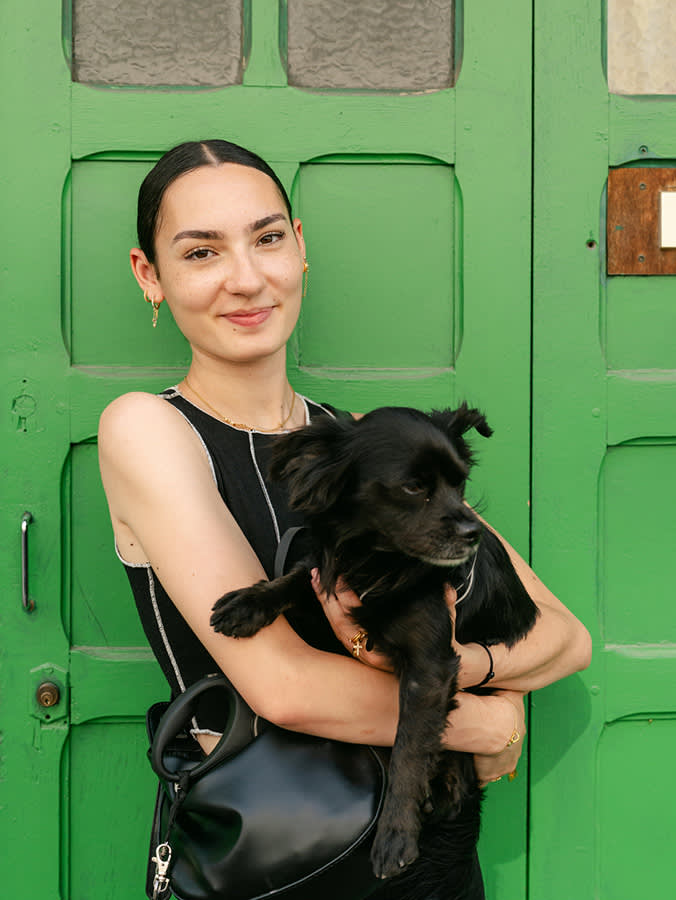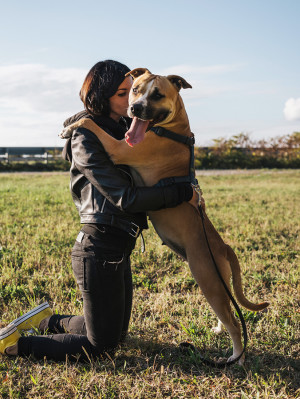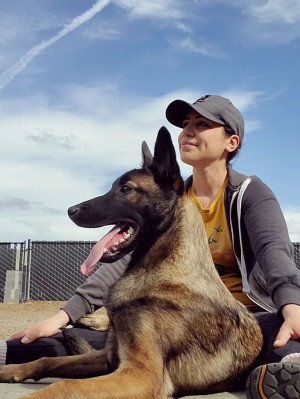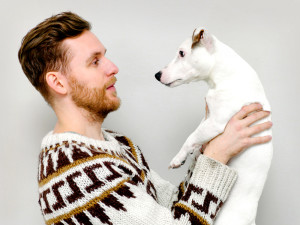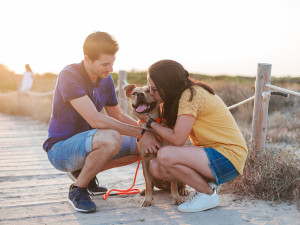Today Is National Black Dog Day—Why You Should Adopt a Black Dog
Sadly, black dogs are adopted less than pups with lighter coats. Here’s everything you should know about “black dog syndrome.”
October 1 is National Black Dog Day, a time to celebrate a kind of animal who’s often overlooked by adopters. Many animal advocates agree that dogs with black coats are often left waiting at shelters for longer than those with lighter coats — it’s a phenomenon known as black dog syndromeopens in new tab. There are a few reasons those in the rescue world point to in order to explain why these pups are so often left behind.
What is black dog syndrome?
“Black dog syndrome” refers to a pattern that shelter workers and animal rescuers have observed over time: Black dogs are more frequently passed over for adoption than dogs with lighter coats. Since the term was coined, animal shelters, volunteers, and rescue organizations have been trying to help guide potential adopters to black dogs who often get overlooked. They’ve gone so far as to teach these pups extra tricks, highlight their personalities in their adoption profiles, and house black dogs solo to help them stand out.
While the “syndrome” is more anecdotal than documented fact, there’s some research to back it up: A 2002 studyopens in new tab of shelter pets in California found that a black coat contributed to lower adoption rates for both dogs and cats. The syndrome may be more present in some areas of the country (and the world) than others, though; a 2016 studyopens in new tab of animal shelters in the Pacific Northwest, for example, found no evidence of black dog syndrome.
“Despite the mixed findings across studies about the adoptability of black dogs, it is no surprise that there is a [real] perception of bias,” says animal behaviorist Karen B. London.
How much do you spend on your pet per year?
Why are black dogs less likely to be adopted?
Color bias
One possible cause for black dog syndrome? Color bias. Studies have found that black dogs are sometimes perceived as less friendly, emotionally stable, and conscientious than dogs with light coats. In another study, people were found to assume that large black dogs are aggressive animals. And regardless of the dog’s size, people were also more likely to change their walking direction when they saw a black-coated dog compared to a light-coated dog.
Less photogenic
Another reason behind the phenomenon could be that black dogs don’t always photograph as wellopens in new tab as lighter-coated dogs. As potential pet parents increasingly search for animals to adopt online — through online resourcesopens in new tab, apps, and shelter and rescue websites alike — they may, consciously or not, skip over black-coated pets because their physical features or facial expressions may not be as clear.
Larger numbers
It has been found that the intake of black dogs (and cats) at shelters is higher than dogs of other colors, with one study finding up to 33 percentopens in new tab of dogs being black coated. This could compound the idea of black dogs remaining in shelters more often.
Myths about black dogs
While most people are aware that black cats are associated with spooky myths, you might not realize that black dogs also negatively feature in a number of myths and folklore. Specifically, black dogs have often been portrayed as “hellhounds” or omens of death. Take, for example, the myth of the “Black Shuck,”opens in new tab a black dog-like beast said to roam the coast of East Anglia, or the “Barghbargestopens in new tab,” a black dog believed to only come out at night as an omen of bad things to come.
While most people today may not believe in these myths, the general stereotype that black dogs are scary or aggressive has still permeated our culture. For example, Sir Arthur Conan Doyleopens in new tab’s The Hound of the Baskervilles focuses on a murderous, supernatural black dog. More recently, the third book of the Harry Potter series introduced the “Grim,”opens in new tab a big black dog said to be an omen of death.
Why you should adopt a black dog
You should adopt a black dog for the same reason you should adopt any dog: You’re ready to take on the responsibility of caring for another living being and reap the countless rewards of doing so. “The idea that black dogs are difficult to adopt…may actually influence people into adopting a black dog. Many adopters prioritize choosing a dog who may not otherwise find a home, and this may mean that such people are gravitating towards black dogs,” London says.
Adopting a “less adoptable” dog, including those overlooked because of their fur color or breed, is rewarding in a unique way — every dog deserves a chance to find their forever home, no matter their appearance.
FAQs
Is black dog syndrome real?
Yes; black dog syndrome is a phenomenon in which black dogs are less likely to be adopted. However, some studies suggest that black dog syndrome may be more of a localized issue or now be less prevalent due to advocacy campaigns.
